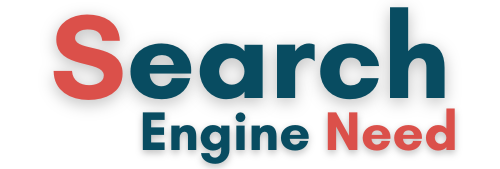Are you looking to become a WordPress developer but not sure where to begin? You're not alone. WordPress powers more than 40% of all websites on the internet, making it one of the most in-demand platforms for web development. Whether you're aiming to build personal blogs, business websites, or custom plugins and themes, this guide will walk you through everything you need to get started — and grow as a WordPress developer.
Step 1: Understand the WordPress Basics
Before diving into code, get familiar with what WordPress really is.
What is WordPress?
It’s an open-source content management system (CMS) that makes creating websites easy—even for beginners. It’s flexible, extendable, and used by millions worldwide.
WordPress.com vs WordPress.org
WordPress.com: A hosted option, great for casual users but limited in customization.
WordPress.org: The self-hosted version, recommended for developers due to full access to files, plugins, and themes.
Step 2: Start Building with No Code (Visual Learning)
A great way to begin is by setting up a simple WordPress website and exploring its features.
📺 Beginner-Friendly Video Tutorials
- [freeCodeCamp WordPress Tutorial (1hr)]
A hands-on guide that takes you through domain setup, installing WordPress, and using themes/plugins. - [Metics Media Quick WordPress Walkthrough (30min)]
Fast, clear intro to creating your first site.
📚 Written Guides
- [WPBeginner’s Ultimate Guide] — One of the most trusted resources for newcomers.
- [Elegant Themes WordPress Guide] — Highly visual, perfect for step-by-step learners.
- [TutorialsPoint / GeeksForGeeks] — Simple explanations of terms, features, and workflows.
Step 3: Learn the Core Technologies
If you want to build themes, customize layouts, or create plugins, you’ll need to learn a few essential tools:
- PHP – The programming language that powers most of WordPress.
- HTML & CSS – The backbone of any website layout and design.
- JavaScript – For interactive features and dynamic content.
- MySQL – For managing content in the WordPress database.
Set Up a Local Development Environment
Use tools like:
- LocalWP (free, easy to use)
- InstaWP (quick online sandbox)
These allow you to build and test WordPress sites on your computer without needing a live server.
Step 4: Move Into WordPress Development
Once you’re comfortable with the basics, start diving into development topics.
Learn From the Source
- [Learn.WordPress.org Courses]: Their beginner developer paths include 59+ lessons covering how WordPress works, file structure, plugin/theme development, and more.
- Official Developer Resources: [developer.wordpress.org] and [codex.wordpress.org]
Key Concepts You Should Know:
- File & folder organization within WordPress
- The WordPress template hierarchy
- Hooks: actions and filters
- Developing child themes and custom themes
- Writing your own plugins
Step 5: Practice & Join the Community
The best way to learn is by building!
Start Small
- Clone an existing theme and make changes.
- Write a plugin that displays a message in the footer.
- Automate email alerts when a post is published.
Become Part of the Community
- Ask questions on WordPress support forums
- Explore communities on Reddit, Facebook Groups, or Stack Overflow.
- Attend local meetups or WordCamps if possible.
Step 6: Useful Resources At a Glance
| Type | Resource | What It Offers |
|---|---|---|
| Video | YouTube: “WordPress Full Course Tutorial” (10+ hrs) | In-depth training, beginner to advanced |
| Video | freeCodeCamp Beginner Tutorial (1 hr) | Step-by-step website build |
| Course | [Learn.WordPress.org Beginner Developer Courses] | Free WordPress learning path |
| Guide | [WPBeginner’s Ultimate Guide] | Written steps with explanations |
| Docs | [developer.wordpress.org] | Official docs for plugin/theme coding |
| Docs | [codex.wordpress.org] | Technical reference for developers |
Final Thoughts: Your WordPress Developer Journey
Becoming a WordPress developer is a highly achievable goal—even if you’re starting from zero. The community is massive, the tools are free, and help is always just a forum post or tutorial away. Here’s how to structure your journey:
- Build a simple site with visual tools and video tutorials.
- Learn HTML, CSS, and PHP to understand customization.
- Follow developer-focused lessons on Learn.WordPress.org.
- Experiment with themes and plugins.
- Engage with the WordPress community.
Start small, build often, and don’t be afraid to experiment. WordPress development is one of the best ways to enter the world of web development — and who knows? Your first client or product might come sooner than you think.
Happy developing!
Got any questions or need guidance on a specific WordPress topic? Drop a comment below or visit developer.wordpress.org to dig deeper.

